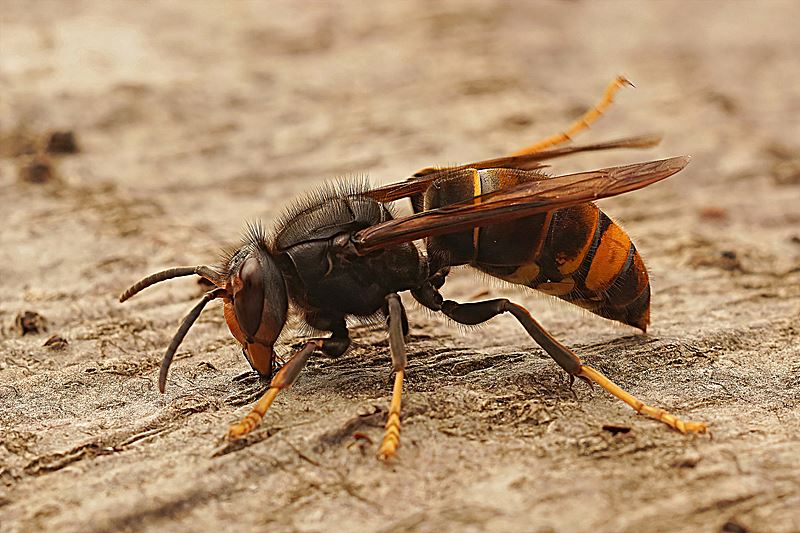Asian hornet's threat to european wine
A new predator on the horizon challenges traditional viticulture and demands a unified response
2024-03-18

In the quaint vineyards that sprawl across the scenic landscapes of Europe, a new threat has emerged, one that buzzes with a menace previously unseen. The Asiatische Hornisse, or Asian hornet (Vespa velutina), an invasive species that has been making its presence felt far beyond its native lands, is now posing a significant threat to the wine industry. The Deutscher Imkerbund (German Beekeepers Association) has raised the alarm, warning of the agricultural damage that extends well beyond beekeeping, into the very heart of viticulture.
The hornet, which first made its way to Europe in 2004, has become a source of concern for winegrowers in regions spanning from Spain to Portugal. A study, referencing surveys conducted among 123 agricultural technicians in the wine and fruit-growing sectors of Galicia (Spain) and Portugal, highlights the growing anxiety. According to the findings, a staggering 83% of respondents from Galicia and 25% from Portugal reported damage to crops, including, but not limited to, wine grapes. This damage isn't just a minor inconvenience; it ranges from slight to severe, with some cases reporting over 75% of fruits being affected.
The Asian hornet's impact on vineyards is multifaceted. Not only does it directly damage the grapes, but the compromised fruits also become more susceptible to other pests. Furthermore, the hornet poses a risk to humans, with its stings being a concern for vineyard visitors and workers, especially during the summer months. This situation paints a dire picture not just for the health of the vineyards but also for the people who cultivate and visit them.
Efforts to combat this invasive species have been met with mixed results. For instance, the deployment of hail nets, a traditional method tested in the vineyards of Galicia, has shown some effectiveness in protecting the grapes from the hornets. However, these nets also come with their downsides, including visual impacts on the picturesque landscapes, which could deter wine tourism, an essential aspect of the region's economy.
The challenges presented by the Asiatische Hornisse are not insurmountable, but they do require concerted efforts from all stakeholders involved. The Deutscher Imkerbund's call to action is not just a plea for awareness but a demand for comprehensive strategies to address the threat at both local and national levels. The situation underscores the importance of international cooperation and innovative solutions to safeguard the wine industry, a critical component of the agricultural heritage and economy of many regions.
The Asian hornet's incursion into European vineyards is a stark reminder of the delicate balance within our ecosystems and the unforeseen consequences of species migration. As the wine industry grapples with this new threat, the collective response will determine the future resilience of vineyards against the challenges posed by invasive species. The battle against the Asiatische Hornisse is not just about protecting crops; it's about preserving a way of life that has been cultivated over centuries.
Founded in 2007, Vinetur® is a registered trademark of VGSC S.L. with a long history in the wine industry.
VGSC, S.L. with VAT number B70255591 is a spanish company legally registered in the Commercial Register of the city of Santiago de Compostela, with registration number: Bulletin 181, Reference 356049 in Volume 13, Page 107, Section 6, Sheet 45028, Entry 2.
Email: [email protected]
Headquarters and offices located in Vilagarcia de Arousa, Spain.